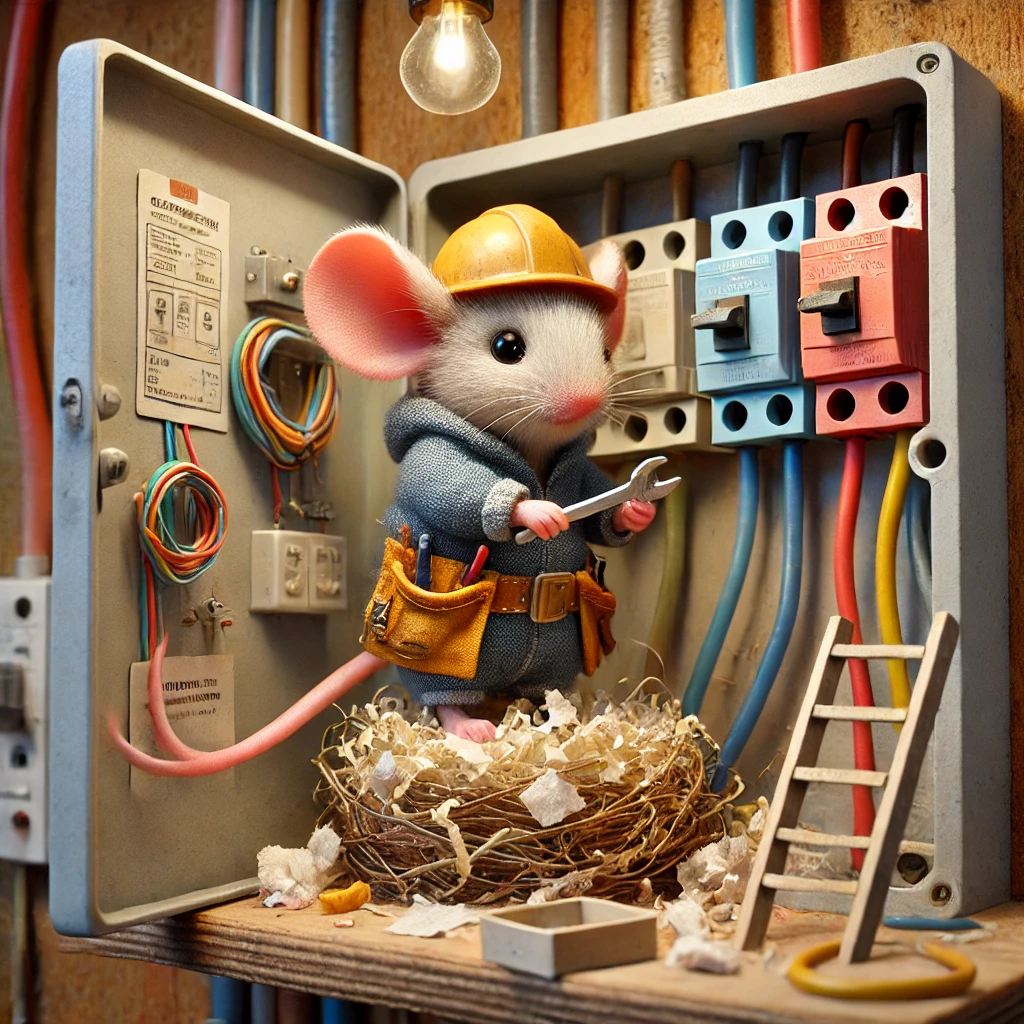Why Upgrade Your Electrical Panel?
Upgrading your electrical panel is an investment in safety, efficiency, and future-proofing your home. Older panels are often not equipped to handle the power demands of modern appliances, leading to frequent tripped breakers, flickering lights, and even fire risks.
A new panel can:
- Prevent electrical fires
- Improve energy efficiency
- Allow for more appliances and home upgrades
- Increase your home’s resale value
- Ensure your home meets current electrical codes
How Do I Know if My Electrical Panel (Breaker Box) Needs to Be Replaced?
1. Frequent Circuit Breaker Trips
If your breakers trip regularly, it could mean your panel is struggling to handle your home’s electrical load. Overloaded circuits are a fire hazard and should be addressed immediately.
2. Your Home is More Than 30 Years Old
Electrical panels typically last 20-50 years. If your home was built before the 1990s, your panel may be outdated and unable to support modern power needs.
3. Burnt Odors or Scorched Outlets
A burning smell, warm panel, or scorched outlets suggest small electrical fires may have already occurred. This is a major safety risk and requires immediate attention from a professional electrician.
4. Flickering or Dimming Lights
Do your lights flicker when you turn on appliances? This means your electrical panel isn’t supplying enough power, indicating it may need an upgrade.
5. Humming or Buzzing Sounds from the Panel
Strange noises coming from your breaker box could mean there are loose connections or faulty wiring, which can lead to electrical arcing and fire hazards.
6. Rust or Corrosion Inside the Panel
Moisture inside your panel can cause rust and corrosion, which weakens electrical connections and increases fire risks. If you notice rust, it’s time for a replacement.
7. Your Panel Still Uses Fuses Instead of Breakers
Older homes may have fuse-based panels instead of circuit breakers. Fuses are outdated, less efficient, and more prone to overheating and fire hazards.
8. You’re Adding New Appliances
If you’re installing a hot tub, air conditioner, EV charger, or other high-power appliances, your panel must be able to handle the extra load. Upgrading your panel ensures your home’s electrical system can support your lifestyle.
9. You’re Planning a Home Renovation
Adding more outlets, lighting, or appliances during a home remodel can exceed the capacity of your existing panel. A panel upgrade ensures your electrical system is prepared for these changes.
10. Your Electrical Panel Has Been Recalled
Some electrical panels have been recalled due to safety defects. Check the Consumer Product Safety Commission (CPSC) website to see if your panel is listed. If so, it’s crucial to replace it immediately.
When Should I Replace My Electrical Panel Box?
There is no strict industry standard for when a panel should be replaced, but a general rule is every 20-50 years depending on:
- The brand and model of the panel
- The condition of the wiring
- The presence of corrosion or moisture
- Your home’s power needs
If you’re unsure about your panel’s condition, contact a residential electrician from Benor Electric to inspect your system.
How Do I Know if I Need to Upgrade My Electrical Panel?
You might need an upgrade if:
- Your panel is 100 amps or less (modern homes typically need 200 amps or more)
- Your breakers frequently trip
- You’re adding major appliances or renovating your home
- You want to ensure compliance with modern safety codes
A professional electrician can assess your panel’s capacity and recommend the right upgrade. Benor Electric offers specialty electrical services to help you upgrade safely and efficiently.
What Electrical Panel is the Best?
When choosing a new panel, consider:
- Brand reputation (Siemens, Square D, Eaton, etc.)
- Panel capacity (200 amps or more for most homes)
- Safety features (ARC fault protection, surge protection)
A licensed electrician from Benor Electric can help you select the best panel for your home’s needs.

